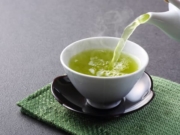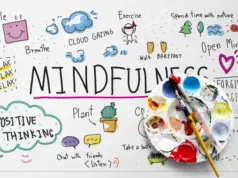In the pursuit of better mental health, one often seeks various therapeutic approaches. An unconventional yet surprisingly effective method gaining recognition is laughter therapy, harnessing the benefits of humor to promote psychological well-being. Read the blog to explore the unexpected power of laughter on mental health and how incorporating humor into our lives can be a valuable therapeutic tool.
- Stress Reduction Through Laughter:
According to the Mayo Clinic, laughter has an immediate impact on stress reduction. When we laugh, our brain releases endorphins, the body’s natural feel-good chemicals. These endorphins promote an overall sense of well-being and can temporarily relieve pain. Laughter also reduces the level of stress hormones, contributing to a more relaxed state. Incorporating laughter into daily life, whether through humor-filled activities, comedy shows, or spending time with funny friends, can be a powerful antidote to the stresses of modern living.
- The Physiological Benefits of Laughter:
The physiological benefits of laughter extend beyond stress reduction. The Cleveland Clinic notes that laughter can have positive effects on cardiovascular health. It enhances blood flow, improves blood vessel function, and may contribute to a reduced risk of heart disease. Laughter also engages various muscle groups, providing a mild workout for the body. Regular laughter sessions, such as laughter yoga, have been associated with improved cardiovascular health, emphasizing the interconnectedness of mental and physical well-being.
- Laughter as a Coping Mechanism:
Psychology Today explores laughter as a coping mechanism, highlighting its ability to reframe perspectives and diffuse tension. In challenging situations, humor can offer a new lens through which to view problems. It provides a psychological distance from stressors, allowing individuals to approach difficulties with a lighter mindset. Laughter doesn’t eliminate problems, but it can change the way we perceive and respond to them, fostering resilience and adaptive coping strategies.
- Social Connection and Laughter:
The role of laughter in social bonding is a crucial aspect of its mental health benefits. Harvard Health Blog emphasizes that laughter is a universal language that strengthens social connections. Sharing a laugh with others fosters a sense of community and support. Laughter therapy often involves group activities, creating a space for individuals to connect, share experiences, and collectively experience the positive effects of humor. This communal aspect of laughter contributes to a supportive environment that enhances mental well-being.
- Laughter and Cognitive Function:
Laughter isn’t just about feeling good in the moment; it also influences cognitive function. The Journal of Neuroscience Nursing suggests that humor and laughter positively impact cognitive processes, including creativity and problem-solving. Engaging in activities that induce laughter, such as watching a comedy or participating in laughter exercises, can stimulate the brain, promoting mental agility and a more positive outlook.
Incorporating Laughter into Daily Life:
To leverage the benefits of laughter therapy, individuals can consciously incorporate humor into their daily routines. This can involve watching a funny movie or TV show, attending a comedy performance, engaging in laughter yoga, or simply spending time with people who bring joy and laughter into their lives. The key is to prioritize moments of genuine laughter regularly, recognizing it as a valuable and enjoyable aspect of mental health maintenance.
In conclusion, laughter therapy emerges as a surprising yet effective approach to promoting mental well-being. From stress reduction and physiological benefits to its role as a coping mechanism, social connector, and enhancer of cognitive function, humor’s impact on mental health is multifaceted. By embracing laughter as a therapeutic tool and integrating humor into our lives, we can harness its positive effects and contribute to a more resilient and joyful mental state.












































